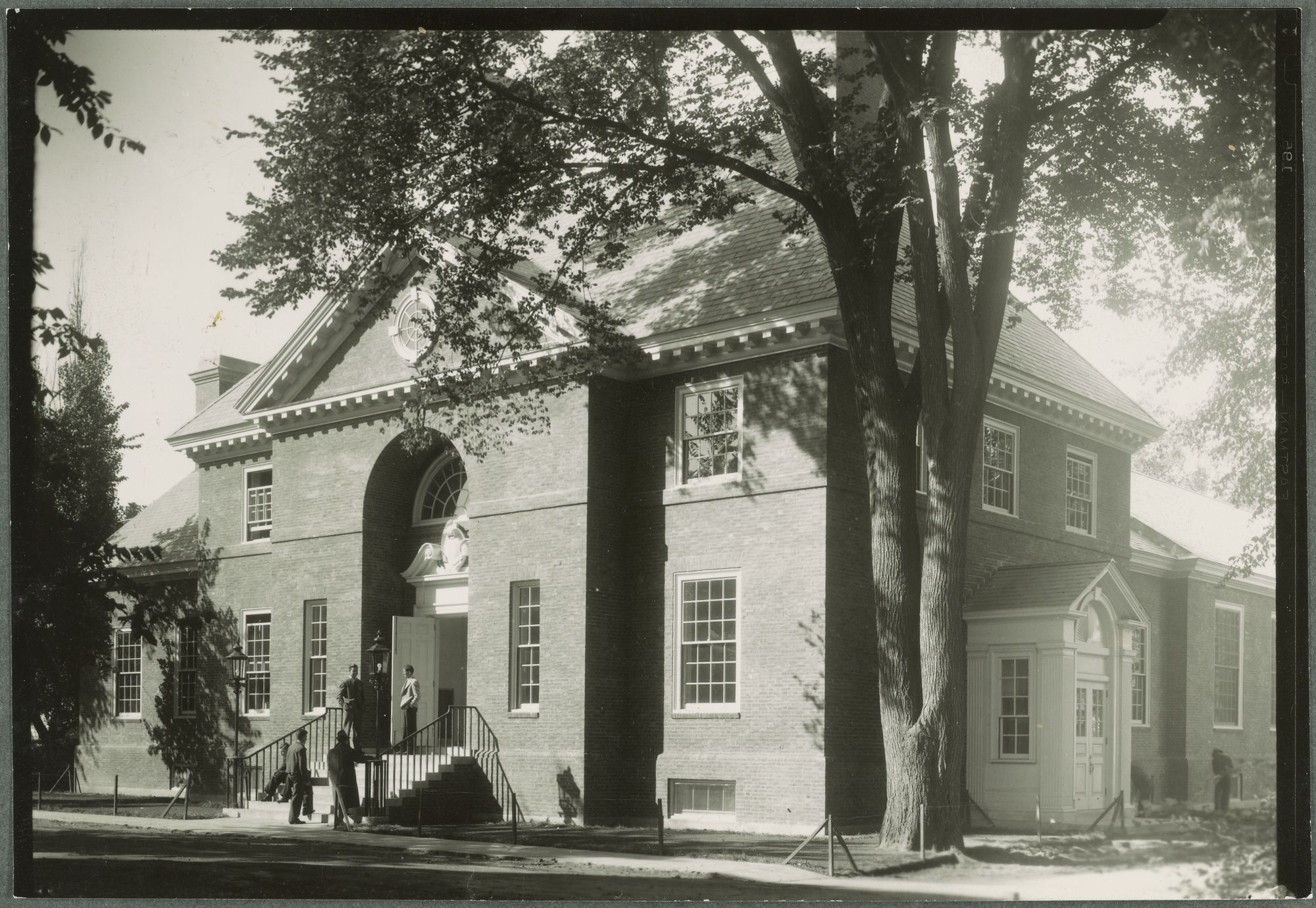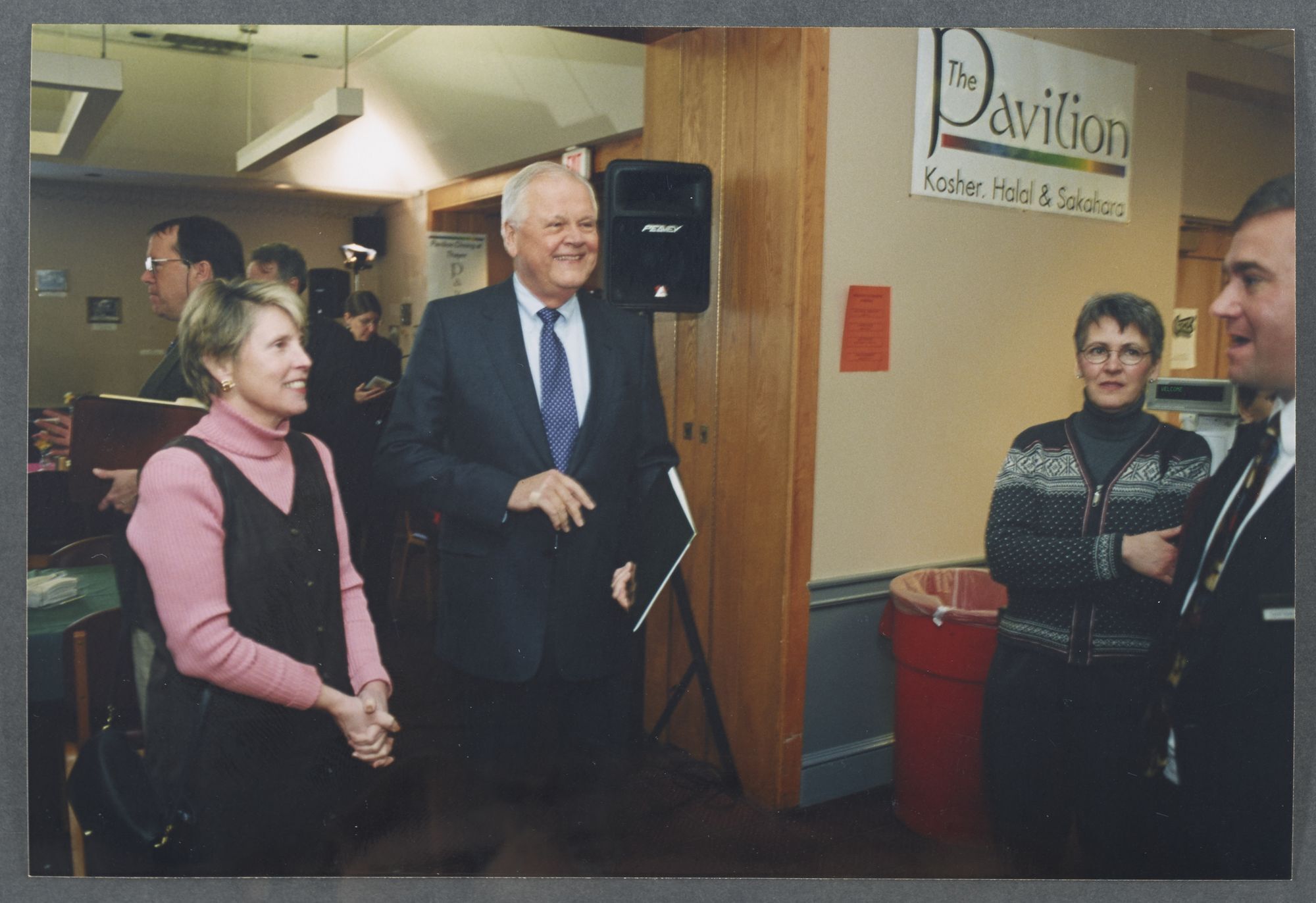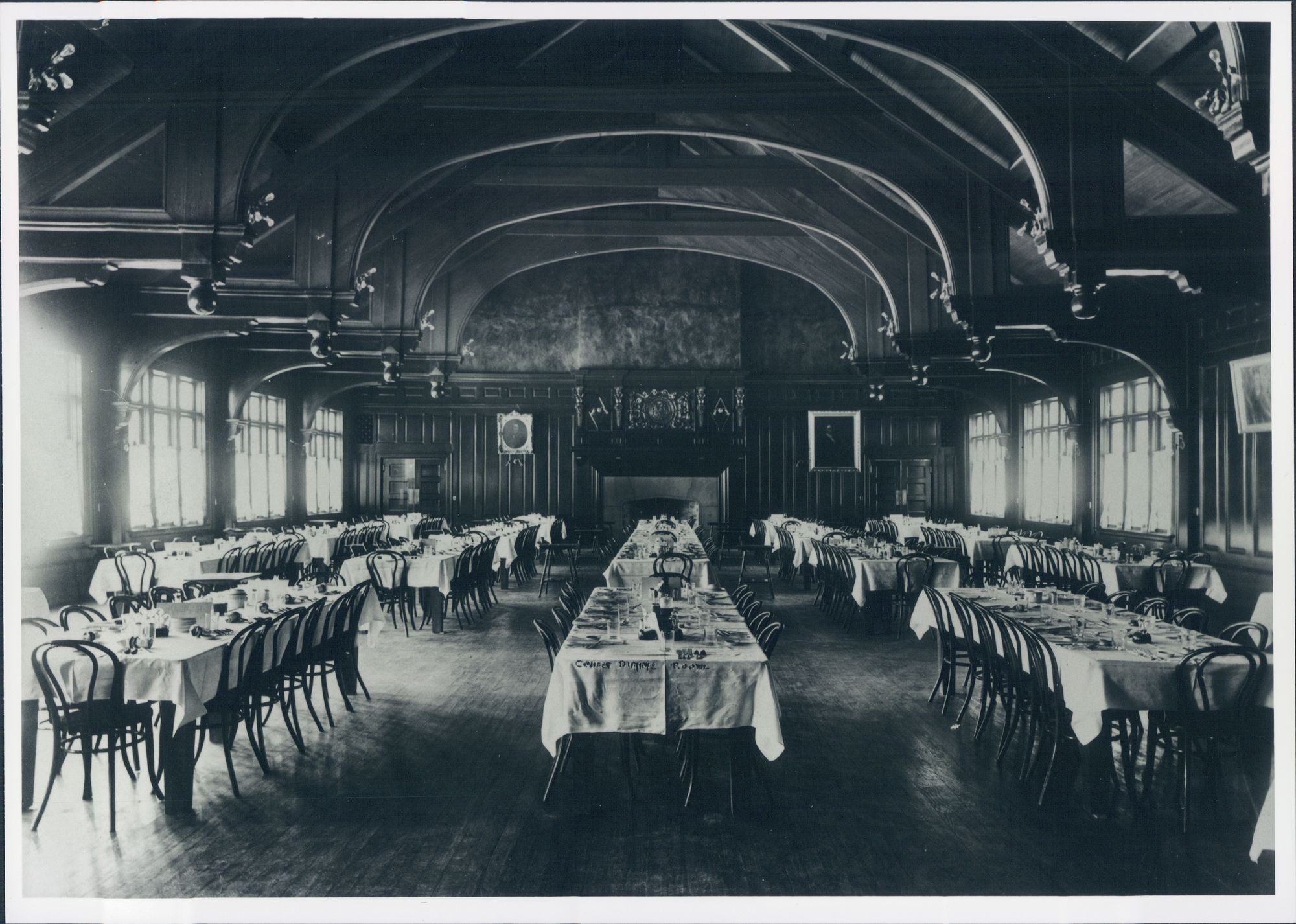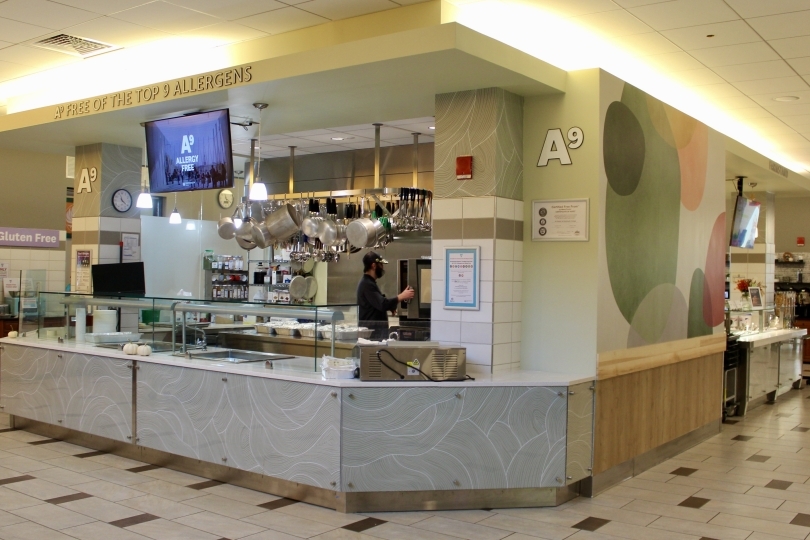An exhibit on the history of food inclusivity and food injustice at Dartmouth College. Exhibit curated by Thomas Corrado '25 as his final fellowship project.
Food for Thought: Food Inclusivity at Dartmouth College
An exhibit on the history of food inclusivity and food injustice at Dartmouth. Exhibit curated by Thomas Corrado '25 as his final fellowship project. Keep scrolling to read his Curator's Statement and exhibit index.
Curator's Statement
Dining at the Class of 1953 Commons, more commonly known as Foco, and other campus facilities is integral to the undergraduate social fabric at Dartmouth College. Mealtime serves as an opportunity for students to forge new friendships, reconnect with old acquaintances, and foster a sense of community. Sharing a meal is conducive to strengthening relationships insofar as the phrase “let’s get a meal” has become a catchphrase to connect with others.
Along with cultivating bonds, dining brings students out of their rooms or the library, creating time for socialization and relief. Adding food to this time with others nourishes students’ minds and bodies.
However, not all students find Dartmouth’s food options fulfilling. Gluten-free students, for example, have reported difficulties in finding satisfying options on campus, even after the recent introduction of the “A9” station at the Class of ‘53 Commons.1 Other students have highlighted the limited and unappealing choices for gluten-intolerant students at campus cafés, such as Baker-Berry’s Novack Café.2 This disparity in dining experiences can make navigating Dartmouth’s food landscape more challenging for students with dietary restrictions.
These stories have inspired me to use this term to focus on the history of food inclusivity and food injustice at Dartmouth. My research aims to explore the improvements made to Dartmouth’s dining offerings and identify areas where further progress can be made to enhance food inclusivity on campus.
Throughout this research experience, I have come to appreciate the significant role that food plays not only in social interactions but also in people’s morals, values, and belief systems. I have learned that students have had to compromise their religious or spiritual beliefs due to the inadequacy of Dartmouth’s dining options. By highlighting these stories, I hope to raise awareness about these issues and advocate for changes that will ensure all students can fully participate in the Dartmouth experience, regardless of their dietary needs or beliefs.
Before commencing with this exhibit, I want to acknowledge that food inclusivity and food injustice are multifaceted topics that may hold different meanings for different individuals. I have chosen to focus on the following topics based on the dining issues that most concern Dartmouth students.
Finally, I would like to thank my research advisor Val Werner ‘20, the Rauner Library staff, and all those who shared their stories with me.
_______________________
1 Allison Burg, “Is A9 the Place To Dine?,” The Dartmouth, September 20, 2023, https://www.thedartmouth.com/article/2023/09/is-a9-the-place-to-dine
2 Adriana James-Rodil, “The Woes of Gluten-Free Dining,” The Dartmouth, May 25, 2022, https://www.thedartmouth.com/article/2022/05/the-woes-of-gluten-free-dining.
 Historical Accountability Student Research Program
Historical Accountability Student Research Program



